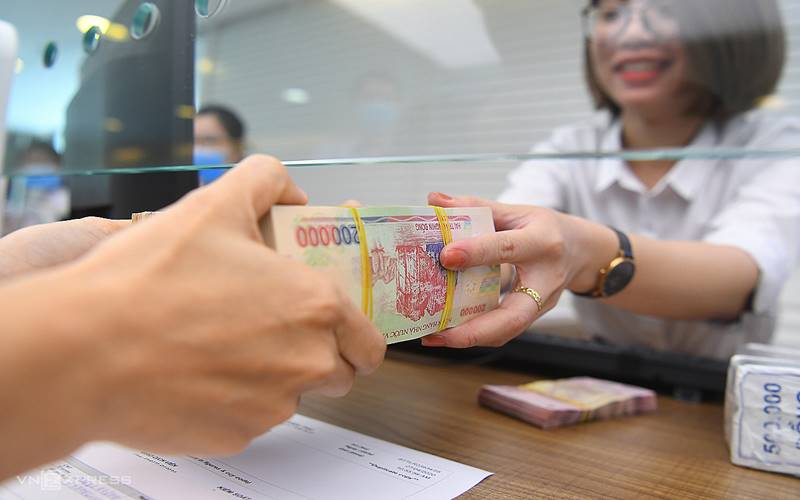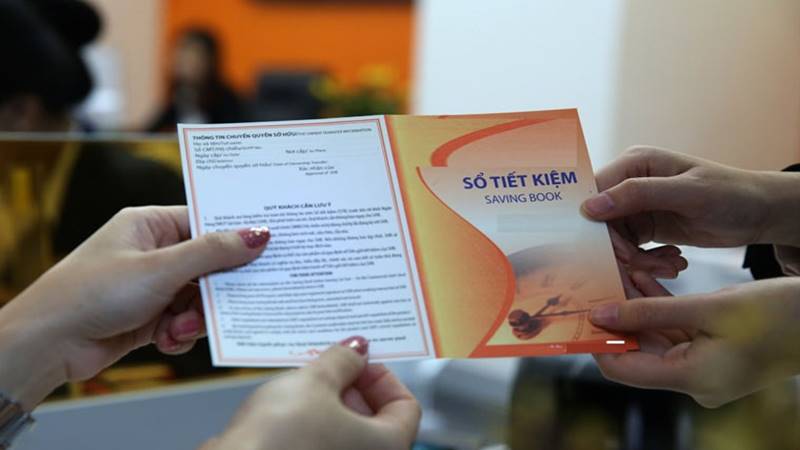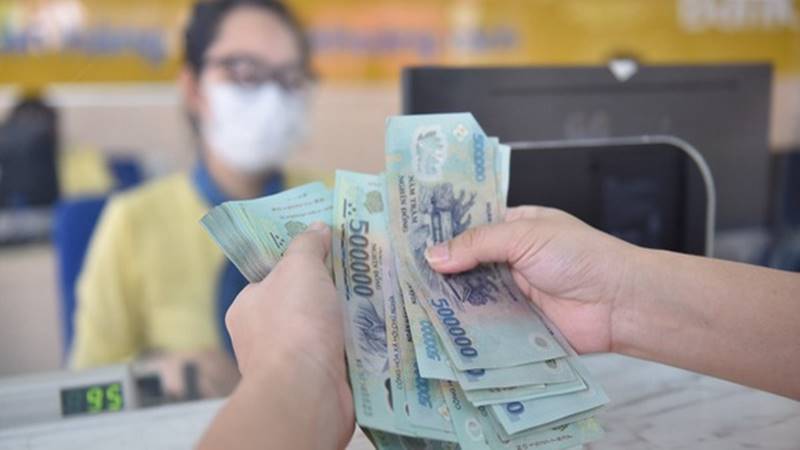Saving money in a bank is a popular choice nowadays, but there are still many cases of losing the saved amount due to the sender’s negligence. Let’s pay attention to the following points to avoid similar situations.
1 Deposit money directly at the counter
 Deposit money directly at the counter
Deposit money directly at the counter
Depositing money directly at the counter is a regulation clearly stated by banks. However, there are VIP customers who often do not directly deposit money but authorize someone else to do so. This is extremely dangerous and can lead to the loss of money because if the staff is dishonest, provides a fake savings book, or does not return the money to the treasury, you will not be able to know, which could cause you to lose all your money.
Therefore, going to the bank and transacting with the counter yourself is the safest way. Moreover, the counter is recorded by a camera, so if something happens, you will still have evidence to prove it.
2 Do not sign blank documents
 Do not sign blank documents
Do not sign blank documents
When making transactions to deposit or withdraw money at banks, customers should not sign blank sheets of paper because your signature is very important, and the staff can use it to withdraw money in various ways that we cannot know. If a bank employee asks you to sign blank sheets of paper, you have the right to refuse because all transaction forms at the bank must have clear content and regulations.
3 Do not deposit money first and receive the passbook later
 Do not deposit money first and receive the passbook later
Do not deposit money first and receive the passbook later
When making frequent transactions at a bank, some customers become familiar with the staff there and may be allowed to owe a passbook or document by depositing money first and receiving the savings passbook later. However, if that staff member resigns or absconds without you receiving the passbook, you will have no proof that you deposited the money and will lose it.
4 Keep your passbook safe
 Keep your passbook safe
Keep your passbook safe
A passbook is a vital document proving that you have deposited a certain amount of money in that bank. Losing a passbook is extremely dangerous because criminals can forge your signature and other personal documents to withdraw money without your knowledge.
If you lose your passbook, contact the bank within 24 hours to block the old one and have a new one issued.
5 Check your passbook carefully
 Check your passbook carefully
Check your passbook carefully
After receiving your passbook, you should carefully check personal information such as your name, age, hometown, etc., as well as the amount you deposited, the date of deposit, the due date, the interest rate, etc. This will help you keep track of your personal information and avoid situations where the staff accidentally or intentionally enters incorrect information.
6 Do not change your signature
 Do not change your signature
Do not change your signature
You should only keep one signature when making transactions at the bank and avoid signing with multiple different strokes because it will be time-consuming and could affect your subsequent transactions.
7 Be aware when saving online
 Be aware when saving online
Be aware when saving online
Nowadays, opening a savings account online is also a popular method chosen by many people due to its ease and high-interest rates. However, you need to carefully check your personal information when creating an account and never disclose your account information and personal password to anyone to avoid criminals taking advantage of you and withdrawing your money.
Our article has summarized for you 7 things to keep in mind when saving money in a bank to avoid losing money. We hope that through this article, you will be able to learn a lot of valuable information for your daily life!
































